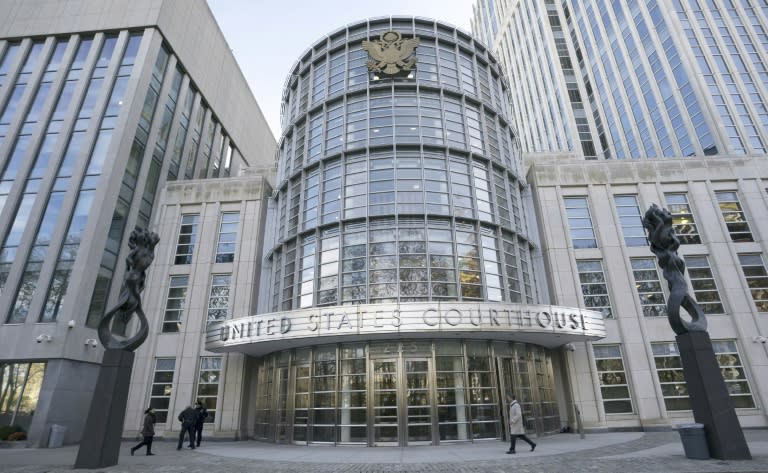El Chapo was co-leader, informant tells US drugs trial
Drug baron Joaquin "El Chapo" Guzman co-headed the Sinaloa cartel, an informant told his US trial Wednesday, skewering defense claims that he was little more than a scapegoat and spilling the operational secrets of the criminal enterprise. Jesus "El Rey" Zambada, brother of still-at-large co-defendant Ismael "El Mayo" Zambada, was one of the first witnesses to take the stand on the second day of what is expected to be a more than four-month trial. In US custody since 2008, he testified at length about the import-export business of the Sinaloa, which rose to prominence after 1997, when Colombia changed the law, allowing its citizens to be extradited to the United States. The change was enacted under pressure from Washington, looking to clamp down on drug trafficking. But instead, Mexican traffickers filled the void, bringing in cocaine by speedboats, fishing boats, planes and even commercial containers, which were then sent in their entirety to the United States. The shipments generated "billions of dollars" that Colombian and Mexican drug traffickers split between them, Zambada said. Guzman, considered the world's largest drug trafficker since the death of Colombia's Pablo Escobar, is on trial in a federal court in Brooklyn under draconian security arrangements after twice escaping from prison in Mexico. He faces 11 trafficking, firearms and money laundering charges that will likely see him incarcerated for the rest of his life in a maximum security US prison if he is convicted. Accused of smuggling more than 155 tons of cocaine into the United States over 25 years, he listened attentively Wednesday, dressed in a dark suit and tie, and sometimes taking notes that he passed to his lawyers. - Stares for beauty queen wife - At other times, he fixed his eyes on his 29-year-old beauty queen wife, Emma Coronel, who sat in the gallery and from whom he is banned from having any direct contact or communication by the court. Zambada testified that he had been working for the Sinaloa cartel for two decades before his arrest, becoming its main leader in Mexico City and that he established a system to track payments from US clients. The price of cocaine rose as it progressed north. In Colombia, a kilo cost about $3,000, in Mexico it was $10,000 to $13,000, in California $20,000, $25,000 in Chicago and $35,000 in New York, he said. He detailed one incident in 1994 when smugglers deliberately sank a fishing boat loaded with a whopping 20 tons of cocaine en route from Colombia to Mexico, believing they were being followed by authorities. Guzman's co-defendant simply hired deep-sea divers and manage to recover the smuggled narcotics, he said. Undercutting the defense argument that the real culprit is the absent co-defendant, Zambada also told the second day of the trial that the cartel was indeed co-headed by his brother and Guzman. He called Guzman "one of the most important drug traffickers in Mexico." Asked by the prosecution who was boss of the cartel, Zambada replied "mainly" Guzman and his brother. Prior to Zambada, the first government witnesses to testify were a US customs agent and a forensic chemist who worked for the DEA. - 'Scum' - In concluding his opening statement, defense lawyer Jeffrey Lichtman sought to discredit the more than a dozen informants expected to take the stand, calling them "scum," "degenerates" and "liars." "These are people who lie every day," he said. He singled out Miguel Angel Martinez, reputedly Guzman's former right-hand man for his "unbelievable" cocaine habit and for lying about it for 15 years. "His nose basically fell off for sniffing cocaine," Lichtman told the jury. Another, Cesar Gastelum Serrano, was a Colombian narco who paid off a former president of Honduras, he added. Prosecutors say that from 1989 to 2014, the Sinaloa cartel smuggled 340,892 pounds (154,626 kilograms) of cocaine into the United States, as well as heroin, methamphetamine and marijuana, raking in $14 billion. They have spent years accumulating more than 300,000 pages and at least 117,000 recordings in evidence against Guzman, whom they said kept his "own private army," a diamond-encrusted pistol and a gold-plated AK-47. Guzman has been held in solitary confinement since being extradited to the United States in January 2017.




